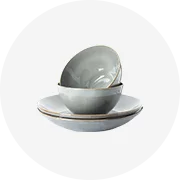

Collapsible BPA Free Splatter Proof Oven Plate Lid Easy Grip Handle Vented Microwave Cover For Heating Food


Factory Price Customized Food Packaging Disposable Tin Foil Plate BBQ Pan Food Aluminum Foil Container Tray And Plastic Cover



















One of the most complicated parts of cooking is keeping food fresh and safe for later consumption. Excess heat, bugs, mosquitos, and many other factors can get in the way of consistent meal preps, outdoor family gatherings, or just keeping store-bought food from spoiling too fast. A food cover is a great option to help curb all of these problems.
Although their function might seem straightforward, there are many types of food covers, each catering to a specific use case. Food covers for outside gatherings, for example, are commonly made with breathable materials, such as mesh, to avoid excess heat while also keeping the served food safe and consumable. These mesh food covers are easily removable, retractable, and replaceable whenever the need arises, being attached to a solid frame that is generally made with equally light materials, such as bamboo wood. Furthermore, the mesh can be quite resistant to tearing and is at no risk of being damaged by water.
Indoors, a more permanent tableware solution might be needed. A plastic container with lids for food is a good option for products that constantly go in and out of the fridge. Made from polyethylene terephthalate, commonly known as PET, these covers are both flexible and sturdy, able to handle fall damage while also being stackable and keeping the food safe.
The types of stress a food cover can endure will depend mostly on the material. The main risk of microwaving plastics is the risk of melting the material, which can lead to small particles seeping into the food. However, certain materials can prevent this, provided they are not heated to extreme temperatures. Silicone bowl covers, for example, are able to retain their shape while also allowing for liquids and solids to be microwaved.
For their general versatility, silicone food covers are widely used for storing, covering, and microwaving not only food but also liquids. Moreover, they can be put into freezers without suffering deformation or other forms of damage, being truly reusable when compared to simple zip-top bags. Whenever liquids go into the freezer, the whole substance contracts as it freezes, pulling with it the walls of the container in which they are stored. This can completely shatter more rigid materials, but silicone bypasses all of that.
Alibaba.com is a platform where B2B buyers and wholesale sellers can close deals. Browse through the offers to find PET microwave lids, picnic food covers, mesh nets, and much more for your stock.